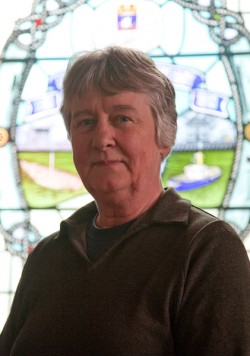Unanimous backing for plan to help Syrian refugees
Shetland will open its doors to Syrians fleeing from terror in their homeland, councillors have unanimously agreed.
Elected members have given their full backing for the isles to play a part in a national response to the escalating refugee crisis.
But they have also criticised the UK government for its stance over the humanitarian plea, and have called on Westminster to find a lasting solution to the unfolding drama which has engulfed the Middle East and has seen many risking their lives to reach the safety of Europe.
One councillor attending today’s special SIC meeting at the town hall described the trauma experienced by displaced families as “sheer hell”.

It came after a motion by jointly signed by political leader Gary Robinson and depute leader Billy Fox called for Shetland Islands Council to participate in the Syrian Vulnerable Persons Relocation Scheme, and to work with the Scottish government in helping those in need.
As part of the scheme, the UK government plans to resettle up to 20,000 Syrian refugees from Turkey, Jordan and Lebanon over the next five years. The Scottish government has committed to accept 10 per cent of the total number of refugees accepted into the UK.
The pledge to take 20,000 has come amid widespread criticism that Westminster has not expressed a willingness to do more. Figures before councillors showed 4.1 million refugees have fled from Syria alone, while a further 7.6 million are internally displaced. The UNHCR is calling on the international community to provide places for 130,000 Syrian refugees by the end of 2016. Just over 100,000 places have been offered so far.
Already the local response has shown a desire to take action against the plight. Earlier this month a silent vigil was held in Lerwick, and food and clothing were gathered to help those caught in the midst of the crisis.
At today’s meeting Jonathan Wills said the UK government had been shamed by people in the isles.
“There is no doubt we should approve this, but I think we should also bear in mind that the government’s refusal to take refugees who have managed to get to Europe is absolutely deplorable,” he said.
“The people of this country, and the people of Shetland, have shamed the government with their response.”
Mr Robinson said comments made by George Osborne in a televised interview – in which the chancellor voiced regret that the

government had not taken action against Syrian leader Bashar al-Assad in 2013 – represented a “huge error of judgment”.
“It [military action] was going to be action against Assad. I’m not making apologies for him, but he was saying his country was overrun by terrorists. Our government was going to take action against Assad, not Isis.”
Mr Robinson was making the call after a recent Cosla meeting, at which all Scottish local authorities showed a willingness to become involved in the resettlement programme.
“In respect of local government in Scotland it’s telling that in 24 hours of the call going out to local authorities to become involved, all 32 local authorities had responded, and had responded positively to that call.”
He sought to allay any potential fears around possible accommodation shortages, insisting there had been offers from the private sector and from individuals who were willing to do what they could.
“I think it’s absolutely essential we do what we can to help the refugees. I think everybody has been moved by the scenes on our television screens, and the desperate lengths people will go to to get away from that conflict.”

Vaila Wishart said the crisis did not just extend to Syria. She had counted nine wars currently raging throughout the world, adding there was an “enormous amount of trouble”.
She cited Afghanis who had acted as translators for the British, and were now in desperate need.
“I agree with the response to [offer to] take a number of refugees into Shetland. Whether they want to come or not is a moot point. When they came from Tristan da Cunha [in the South Atlantic], we offered them a home but they didn’t really want to come. But we ought to be making our voices heard.”
She was speaking after George Smith, who alluded to an comment article on the topic by Ms Wishart in Shetland Life, said the concerns of local authorities needed to be reflected in any future changes to international policy.
“We should be making our voice heard about the abhorrence of the situation,” he said.
Exactly how many refugees are likely to end up in Shetland is unclear, although members were told the figure is not likely to be high.
Convener Malcolm Bell said any refugees who did come to the isles would likely be in “very small numbers”. Chief executive Mark Boden said the UK government would decide on exactly which local authorities would be allocated to refugees coming to the UK.
It came after Allison Duncan highlighted findings which put the cost of living in islands up to 40 per cent higher than in urban areas. He wanted to know if Shetland would receive extra resources to help cover the costs of taking in refugees. He was grateful for the quick response, and sympathetic to those who were fleeing from terror in their own homelands.
“These people are going through sheer hell, to put it mildly,” he told committee members.







Chris Johnston
According to the EU, 80% of the refugees are not Syrians. What is SIC’s position about non-Syrian refugees?